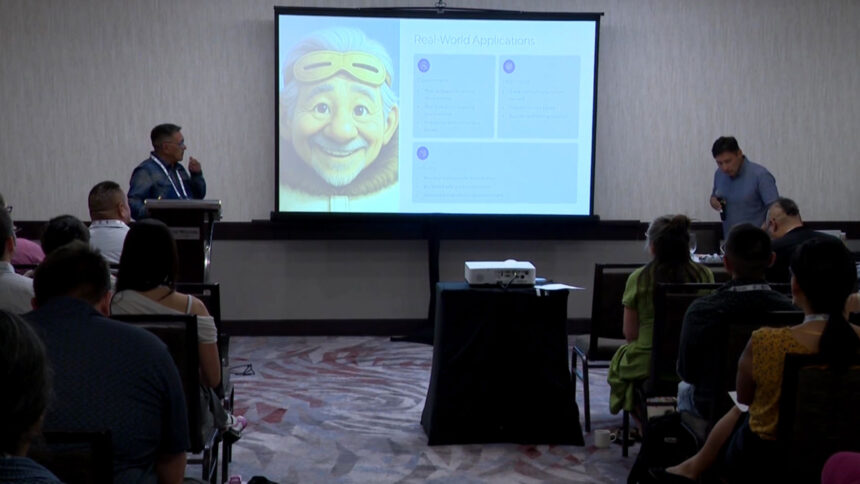Kirt Ejesiak developed his own Inuktut AI application called AingAI that provides instant translations, interpretations and is able to convert text, audio and video. The platform only offers translations in South Baffin Inuktitut, with the goal of expanding to offer other Inuktut dialects. “If we’re able to use our app to be able to communicate with our cousins in Greenland all the way to Alaska and Russia, [where] we have lots of relatives, the language becomes, you know, not a barrier anymore,” Ejesiak said. “And we can actually speak to those dialects as if we’re a native speaker.” Ejesiak was a presenter at Waves 2025, a week-long conference in Ottawa hosted by the Office of the Commissioner of Indigenous Languages. Michael Running Wolf is a presenter as well. He’s also the co-founder of the First Languages AI reality, which aims to revitalize Indigenous languages using artificial intelligence. “With AI, you can have this opportunity to practice while you’re at home, which you would normally require, have a speaker in the house or an elder. And this plugs that gap,” he said. Watch AingAI video of its model Some AI models have begun offering translation and the teaching of Indigenous languages. While this can be a positive in the efforts to revitalize Indigenous languages, both acknowledge there could be harms. Ejesiak said companies in Silicon Valley, like Google, are harvesting data to produce Indigenous language AI models. “They’re taking data that really, number one, it’s given to them by governments, which I have a problem with, because they really should be consulting the Inuit, the owners of the language, the voice, you know, the text. So that, you know, if they’re going to benefit from that, there should be some kind of return for Inuit,” he said. “This is basically a colonialism product because it’s from sort of a non-Indigenous lens. What we’re trying to do is focus the lens really on Inuit and really try, if that’s possible.” Running Wolf said data sovereignty is something his company is aware of. “We are highly sensitive to any community, you know, withdrawing their consent, we want to be as ethical as possible,” he said. “And so we don’t take public data sets, which may have been taken unethically.” Continue Reading
Language experts praise AI, but offer warnings as well

Leave a Comment










